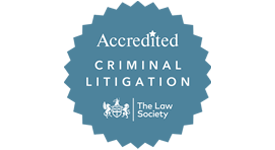Being accused of a sexual offence can destroy a person’s life, therefore having a robust defence is crucial. There is ongoing concern about the failure to disclose vital evidence to criminal defence solicitors in rape trials, leading to the Crown Prosecution Service having to stop cases. An investigation into the failure to disclose evidence highlighted common themes including:
- failure to examine social media accounts and text messages in a timely manner
- not retrieving medical and social service records
- emergence of new evidence after the charge not disclosed
These failings illustrate the importance of instructing an experienced, partner-led criminal defence team to advise and represent you. Our experience in defending those charged with sexual offences means we can quickly spot any procedural errors or disclosure gaps and build a strong defence around these and other matters.
The Sexual Offences Act 2003 repealed almost all existing legislation relating to sexual offences. At Faradays Solicitors, we have expert knowledge of this Act and understand how to construct a credible, vigorous defence.
Please contact us on 0207 281 1001 or at enquiries@faradayssolicitors.co.uk.
What are the different types of sexual offences?
There are several different types of sexual offences, including:
- Rape – to gain a conviction, the prosecution must prove a male or female was penetrated in the vagina, anus or mouth, by the penis of the defendant, without the consent of the complainant and the defendant did not believe the complainant had reasonably consented. To consent, a person must agree to the penetration by choice and have the freedom and capacity to make that choice. The maximum sentenced if convicted of rape is life imprisonment.
- Sexual assault – this is defined under the Sexual Offences Act 2003 as where the defendant intentionally touches a man or a woman in a sexual way, and the complainant does not consent to it, and the defendant does not reasonably believe that the complainant has consented. This offence can be committed by both sexes. If found guilty on indictment,[PM1] the maximum prison sentence is ten years. A summary conviction can lead to incarceration not exceeding six months and/or a fine.
- Sexual assault of a child under 13 years – a child under 13 cannot consent to sexual activity, so the prosecution only has to prove the defendant intentionally touched the person (or penetrated if the charge is sexual assault under the age of 13 by penetration), and the child was under the age of 13 years when this happened. Rape of a child under 13 years is a specific offence under section 5 of the Sexual Offences Act 2003 and carries a maximum penalty of life imprisonment.
What defences are available for rape and sexual assault?
Sexual offences are extremely serious, and therefore it is crucial you enter an appropriate plea to the specific sexual offence you have been charged with. We will advise you fully on this.
The key defence for rape and sexual assault is that the complainant consented to the sexual activity. You may also be able to prove that the sexual touching was done by accident or you had an alibi confirming you were not in the vicinity at the time the sexual offence you are accused of took place.
There is also a defence of automatism and parasomnia available if you can prove, beyond reasonable doubt (also referred to as ‘so that the judge and/or jury is satisfied so that they are sure’), that you acted involuntarily; for example, you committed the act whilst sleepwalking. If it can be proved that the complainant fabricated their allegations, you may also have a defence.
What is the offence of sex trafficking?
The Modern Slavery Act 2015 provides for the offence of human trafficking for sexual exploitation. We have extensive experience in this area, including successfully having the sentence of a person convicted for conspiracy to traffic for sexual exploitation reduced substantially[PM2] .
Human trafficking is defined as where a person arranges or facilitates the travel of another person (A) with the view of A being exploited. It is irrelevant to the offence whether A consents to the travel or is an adult or a child. To gain a conviction, the prosecution must prove the defendant:
- arranged or facilitated the travel of A
- intends to exploit A in any part of the world during or after the travel, or that they know or ought to know that another person is likely to exploit A during or after the travel
- that the travel of A is either arriving in, departing from or travelling within any country
The maximum sentence for human trafficking is life imprisonment. In addition, a Slavery and Trafficking Reparation Order can require the defendant to pay compensation to their victim for the harm they have suffered because of being trafficked.
Is there a defence to rape or sexual assault if the complainant or I was drunk at the time of the alleged incident?
Under section 74 of the Sexual Offences Act 2003, a person can only consent to sexual activity if they agree by choice and have the freedom and capacity to make that choice. Therefore, if the complainant is drunk, they may not have the capacity to consent. In addition, there has been a development towards the expectation that the defendant may be required to demonstrate the basis of their belief that the sexual activity was consensual. In a large number of sexual assault and rape cases, both the defendant and the complainant were intoxicated at the time of the event, making it a difficult task for the defendant to show that consent was given.
If alcohol was a factor in your case, we will carefully examine the circumstances and provide you with the best legal advice about how to present this in court. Our team understand the complexities intoxication can bring to a sexual offence case and will build a strong defence around the matter.
To contact our sexual offences solicitors or get emergency police station representation, please phone our office on 0207 281 1001. You can also email us at enquiries@faradayssolicitors.co.uk.




